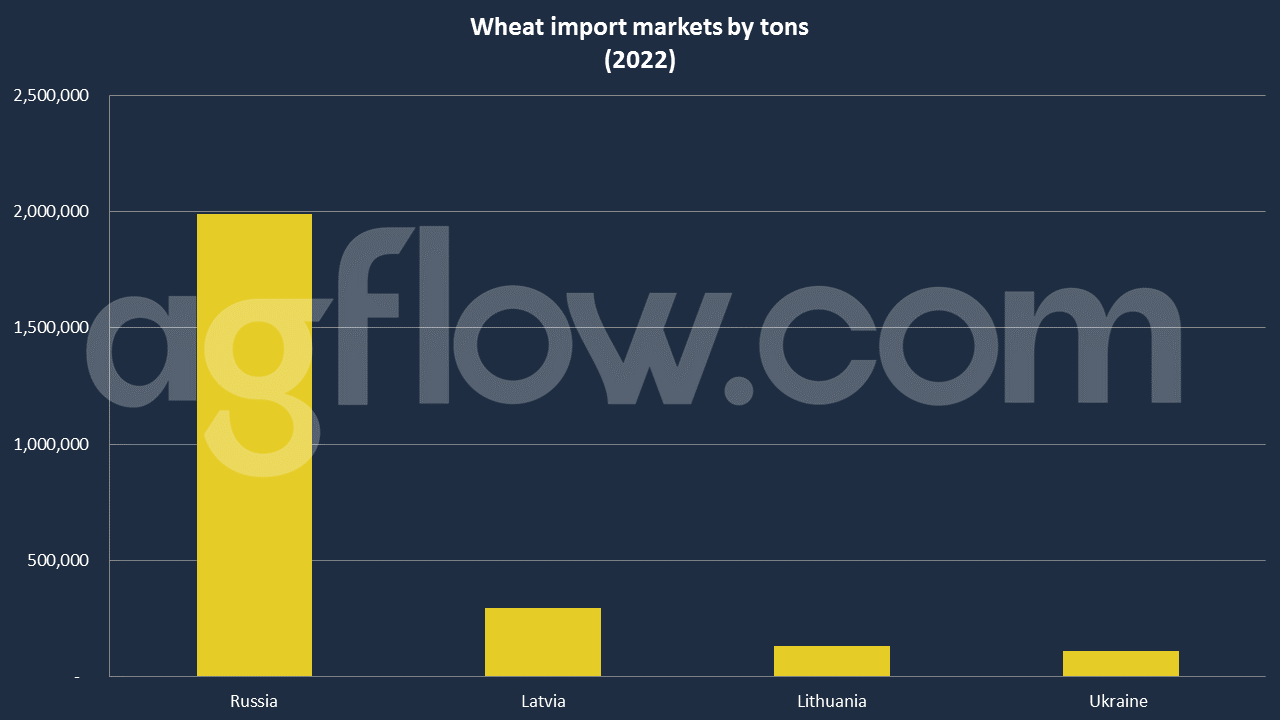Saudi Arabia Ships Its Own Wheat From Ukraine
Reading time: 2 minutes
Many experts believe the Saudi Arabian Government will renew its domestic wheat production policy in 2025, allowing the Kingdom to produce up to 20% of its wheat consumption demand annually to retain wheat production know-how and technology. Following a significant cut in local forage production in 2018/19, the Government offered medium and smaller-sized producers three options: 1. Terminate forage production altogether and receive financial compensation, 2. Produce forage on 50 HA, and 3. Produce wheat on 50 HA.
Farmers who opted to produce wheat, or forage, must obtain licenses from MEWA and should only produce the crop they are licensed to grow until 2025. If a farmer wishes to switch between the two crops, they must reapply for a new license after two production seasons, and only licensed farmers can produce wheat or forage. Any unlicensed farming of the two crops will result in severe financial punishment. The Saudi Grains Organization (SAGO) was authorized by the Government to purchase up to 1.5 MMT of locally produced wheat until 2024 to achieve this goal, and the Saudi Ministry of Environment, Water and Agriculture (MEWA) are willing to increase the production area for small farmers if they wish to increase their wheat production.
MEWA assigned the supervision of the Kingdom’s food security strategy to SAGO. One of the focal pillars of the plan encourages Saudi companies to invest in foreign countries to export part of their agricultural production to the Kingdom. The Saudi government provides incentives such as exclusive import tender and profitable purchase prices to the Saudi private sector (companies and individuals) to produce strategic crops to meet domestic demand and build storage reserves. Most products include rice, wheat, feed barley, yellow corn, soybean meal, oil seeds, sugar, and red meat.
Following the privatization of all Government-owned flour milling companies, as well as the handover of barley imports to the private sector in 2021, SAGO is expected to meet the Kingdom’s food security needs. Under this new role, SAGO will continue to import wheat and manage local wheat production, assuring that all targeted food products are available in the country at sufficient levels. SAGO’s existing silos will be handed over and managed by a national silo organization that the Saudi government is expected to form in the next few months. The organization is projected to generate revenue from its storage services.

Saudi Arabian Investment in Wheat
Several large Saudi companies have invested in foreign countries to supply part of their production to meet the Kingdom’s food security initiative. One of the leading firms investing in foreign agricultural projects is SALIC (www.salic.com). The firm, which has agricultural investments in Australia, Brazil, Canada, and Ukraine, has been exporting wheat to Saudi since MY 2019/2020 from its overseas farms. Wheat produced in Ukraine comes from SALIC’ owned Continental Farmers Group, which is in the western part of the country. A prolonged conflict in Ukraine would negatively impact Saudi Arabia’s investments. SALIC does not own farms in Canada but is a partner in the G3 Global Grain Group with Bunge (one of the leading providers in grain trading).
Other leading Saudi investor in foreign farming sectors is Al Rajhi International for Investment Company (www.raii.net/en). Al-Rajhi has agricultural-related investments in Egypt, Sudan, and Ukraine. Another one is Almarai Company (owner of Fondomonte Argentina and Arizona). Fondomonte Argentina produces grains and green fodder.
As per AgFlow data, Saudi Arabia imported wheat at an average CFR of $415/ton in 2022. Latvia emerged as the second-largest import market of Saudi Arabia with 0.3 million tons of Wheat this year, followed by Lithuania (0.1 million tons), and Ukraine (0.1 million tons)
Other sources: USDA
Try AgFlow Free
Access Free On Updates for Corn, Wheat, Soybean,
Barley, and Sunflower Oil.
No Credit Card Required & Unlimited Access In Time

